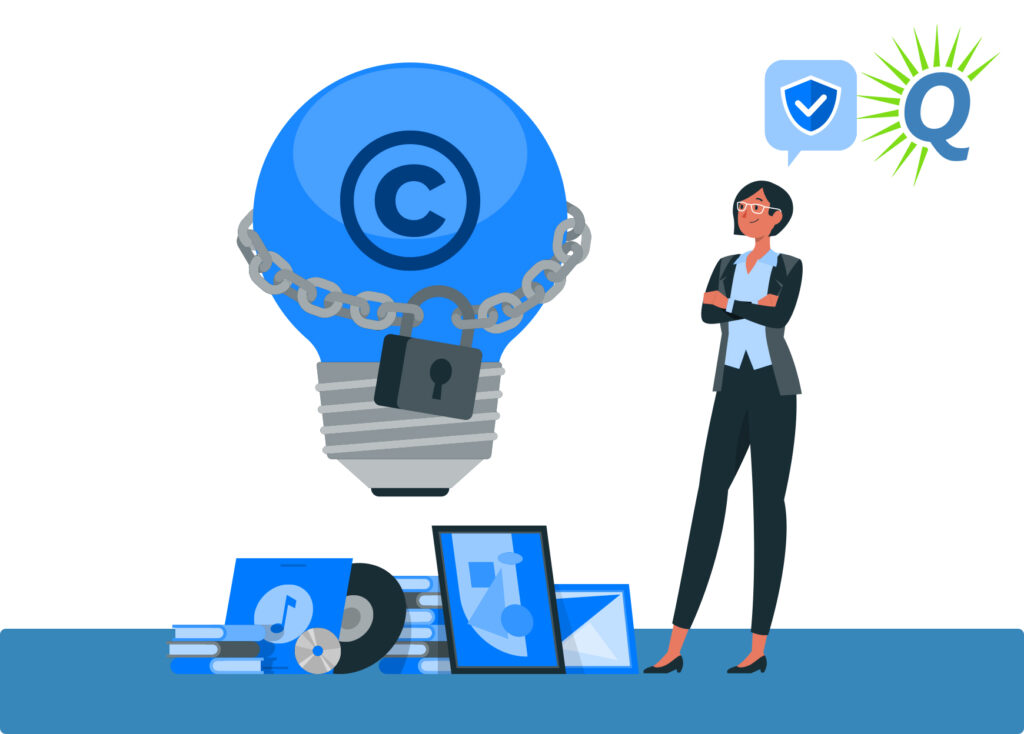Topics:
Never Miss a Beat - Get Updates Direct to Your Inbox
FILTER:


How Do Patents Affect Business Valuation? Here’s What You Need to Know
By Quiet Light
If you’re buying or selling a business that involves patents, it’s essential to know how patents impact the business valuation process. Armed with a clear understanding, you’ll be in a better position to negotiate a deal that accounts for the true value of this important IP asset class.
In this article, we address several key topics regarding patents, including:
- What patents are
- How patents impact business valuation
- What you should know about patents before selling your business
- Three things you should consider about patents before buying a business
Related Articles:
Tips for Growing Business Value
Business Exit Strategies: Five Key Steps to Maximize Your Business’s Value Before Selling


What Is a Patent?
Before we look at how patents affect business value, let’s first understand what exactly a patent is.
Patents defined
Throughout the course of building a business, owners may create a new invention. In order to capitalize on the R&D needed to drive innovation, the owner may apply to have their inventions legally protected. This prevents other individuals or companies from using the invention for a specified period of time. As a result, patents help encourage research and innovation by helping inventors feel confident that their new discoveries will yield financial benefits.
To be specific, a patent is a property right granted to the owner by a sovereign authority in exchange for a full disclosure of how the invention works. The patent provides the inventor exclusive rights to the design, process, or invention for a period of time.
In the United States, that sovereign authority is the US government. The government administers patents through the United States Patent and Trademark Office (USPTO). Patents are most often issued for 20 years from the time the owner files the patent, although there are exceptions to this.
There are several different types of patents within the US, including:
- Utility patents
- Design patents
- Plant patents
Utility patents are the most common type of patent, making up roughly 90 percent of all patents. Utility patents offer protection for an article of manufacture, a new and useful process, a composition of matter, or a machine.
Design patents protect people who have created new or original designs for products. Essentially, design patents protect the individual look of a product, and they last for 15 years.
Plant patents protect people who create, discover, or invent a new type of plant that is capable of reproduction. Plant patents last for 20 years.
“Utility patents offer protection for an article of manufacture, a new and useful process, a composition of matter, or a machine.”
How are patents different from trademarks and copyrights?
Many individuals confuse patents with trademarks and copyrights. While they share similarities (mainly legal protection), there are certain differences.
A trademark is legal protection for phrases, words, or designs that signal a specific product or service. For example, your company logo or name design would fall under trademark protection.
Copyrights are legal protections for “original works of authorship.” In other words, copyrights protect creative works of the mind. This could include a play, books, software, poetry, or other creative items.


How Do Patents Impact Business Valuation?
Now that we have an understanding of patents and the purposes they serve, let’s take a closer look at the role they play in the business valuation process.
Understanding business valuation: The SDE multiple method
To see how patents affect valuation, it is important to know how to calculate business value in the first place. While there are many different ways of determining value, the SDE multiple method is the most common when it comes to online businesses.
According to the SDE multiple method of valuation, value is equal to the SDE times a multiple. Or, written more simply:
Company value = SDE x the multiple
SDE stands for seller’s discretionary earnings. While it is similar to income, there are several key differences. To calculate SDE, start with income and add back certain discretionary (optional) income and expenses. These include but are not limited to:
- Owner’s salary
- Taxes
- Interest
- One-time expenses
- Other discretionary expenses
SDE provides a clearer picture of the true money-generating capacity of a business than income alone. As such, it is a more useful figure when comparing two or more businesses to each other.
“Risk can come from many sources, including single points of failure, legal issues, and patent or intellectual property challenges.”


Understanding the valuation multiple
The multiple captures tangible and intangible aspects of business value. Two companies could have identical SDE figures but very different overall values. The multiple captures this difference.
While there are a number of individual factors that impact the multiple value, they can be grouped into four main categories known as the Four Pillars of Value. They are:
- Growth
- Risk
- Documentation
- Transferability
A company with strong past and current growth trends is more likely to perform well in the future compared to one that has been stagnant or in decline.
While all business ventures entail some level of risk, the more risk involved, the less valuable the business will be, all other things being equal. The heightened risk reduces the chances that a given business will produce a payout in the future. Risk can come from many sources, including single points of failure, legal issues, and patent or intellectual property challenges.
Businesses that have clear financial records, standard operating procedures, and other important documentation are more attractive to prospective buyers than those that have disorganized or nonexistent documentation.
Easily transferable companies (companies that can be easily transferred from one owner to another without negatively impacting their performance) are more valuable than those that are difficult to transfer.
Now that we have briefly reviewed how to determine business value, let’s take a look at how patents can impact the valuation process.
Get a free, individually-tailored valuation and business-readiness assessment. Sell when you're ready. Not a minute before.Thinking of Selling Your Business?
Patents can help to protect income
SDE is a major component of business value. Therefore, if patents play a role in protecting SDE and income levels for a business, they naturally have an impact on the value of that business.
For example, let’s say you are looking at purchasing a business that sells several unique products, all of which are protected by patents for the next 15 years. Given their patent protection, you can have a measure of confidence that these products will continue to be profitable by means of reduced competition. How patents affect business value varies from case to case, but in this one, it could be significant.
On the other hand, let’s say you are considering purchasing a business that relies on several unpatented products for the majority of its income. In this situation, the business is more vulnerable to copycat companies emerging to compete. This can potentially drive down income and profitability. In this case, how patents affect business value may be significant.


Patents help to mitigate risk
In addition to helping to protect income, patents also help to mitigate the risk involved with business operations. If a product or invention is protected by a patent, there is less of a chance that that product will face heightened competition in the future. The absence of a patent, where appropriate, can increase the risk of future competition.
Risk must be assessed on an individual basis. Due to their business plan, some companies may not need to rely on patents in order to protect their income or operations. Others may need to rely heavily on patent protection.
Whether you are selling or buying a business, get clear on the degree to which your company or a target company incorporates patent protection into its business plan.
“In addition to helping to protect income, patents also help to mitigate the risk involved with business operations.”
What You Should Know about Patents Before Selling Your Business
There are several things you should take into account regarding patents before selling your business.
Get clear on how patents play a role in your business
If you haven’t already, be sure to get a clear idea of the role patents play within your business. Do your products rely on patent protection to maintain profitability? Are there ways your patent protection could be improved? By understanding how patents impact your company’s profitability, you will be better able to communicate this information with interested buyers.


At the same time, be sure to thoroughly check that your patents are correct and up to date. Ensure you have all appropriate paperwork, and prepare yourself to answer any questions a buyer might have regarding your patents.
“By understanding how patents impact your company’s profitability, you will be better able to communicate this information with interested buyers.”
Patents are not bulletproof
Keep in mind that patents are not perfect. In fact, even after being granted, a patent is not guaranteed to provide protection until it is tested through litigation. Once subjected to intense scrutiny through litigation, many patents are deemed invalid.
This implicit uncertainty around patent validity can serve to weaken the value that patents bring to a business.
Three Things You Should Consider about Patents before Buying a Business
On the buying side, there are several key things to consider in regard to patents when evaluating a prospective company.
Check company patents
For starters, gain an understanding of how patents fit into a company’s business model. Do they rely heavily on patent protection for their products or not? If so, how much time is left on the patents? These questions will determine how patents affect business value.
As discussed, it can be difficult to determine the validity of patents if they have not been tested in court. Regardless, you and your team should take the time to verify that all patents and paperwork have been filed correctly and that everything is in order from an administrative perspective.


Be aware that patents do not offer perfect protection
As mentioned, patents do not offer perfect protection in all situations. Keep this in mind when examining a company that incorporates patent protection into its business model. While they may have patents on file, it does not necessarily mean that they will offer protection when tested in court. Therefore, how patents affect business value will vary depending on the context.
Check outstanding or past lawsuits relating to company patents
Be sure to check if there are any outstanding or potential lawsuits against the company before deciding to move forward with the purchase. Discovering patent infringement issues or other related issues after purchase can torpedo an otherwise excellent deal.
By informing yourself about patents and the impact they can have on business valuation, you can better prepare yourself to successfully buy or sell an online business.
Outsmart the startup game and check out our listings. You can request a summary on any business without any further obligation.Buy a Profitable Online Business





